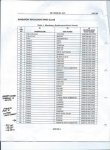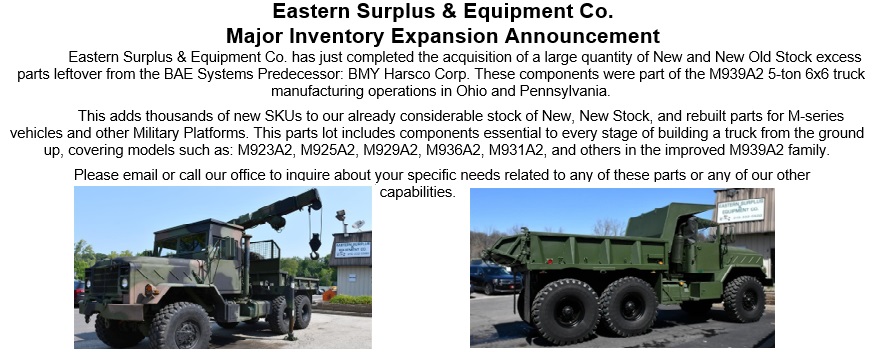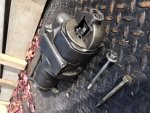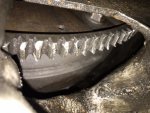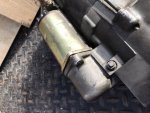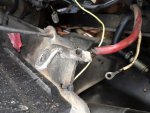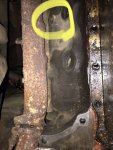Update…got the starter out. One of the two solenoid screws were missing, Starter screws were mismatched, flywheel teeth got jacked up, and the cables coming from the batteries were really not lookin hot. On top of that, there was no nose bracket to stabilize the starter.
Does anyone have a pic of how the big battery cable crimp going to the solenoid connection is supposed to look?
View attachment 851717View attachment 851718View attachment 851719View attachment 851720
Ouch. I feel your pain. I just got done with a job like this on my own M1009.
 Squibbly's M1009 Project | SteelSoldiers
Squibbly's M1009 Project | SteelSoldiers
There are 3 mounting points on the starter (the two big bolts and the bracket nut.) and if they all aren't in place, eventually it's going to chew up your flex plate.
It actually cracked the inspection cover on mine as well. Apparently these starters have a lot of torque. I have been told if you don't take care of it, it can crack the block.
I did the same thing with my starter. I noticed the rear bracket wasn't connected (and the batteries were 12 years old and had about 200 CCA left)), so I put in new batteries, installed the starter the correct way, and when I went to start the truck again, I got about 3 starts and then it turned into a nasty crunching noise, and then just straight spinning bendix not catching any teeth. I took down the inspection cover and looked at the flex plate and it had given up the ghost. Missing teeth, the rear of all the teeth had been chewed through.
I think the flex plate has a memory. If the starter is mounted wrong it will create a wear pattern on the flex plate to compensate for the bad installation, and when you fix it, it no longer matches the wear pattern and just chews up what thin material was left on the teeth. If you don't fix it, especially if it is loose, it'll eventually just run out of material from constantly shifting position.
My starter wasn't all shaken apart like yours is, but I ordered another one on ebay. Actually I ordered one on Amazon first but when I got it, it looked like a piece of junk so I sent it back. I ordered one of these and it works great.
DELCO 27MT 24 VOLT for 6.9L CHEVROLET STARTER 10497166 REMANUFACTURED | eBay
You will also need to get that bracket and bolt, and it also looks like you are missing the heat shield for the exhaust pipe that attaches to the bellhousing.
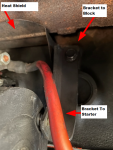
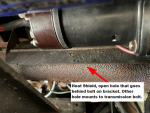
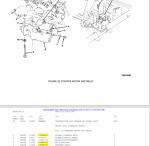
It'll take some work to get that flex plate out. I had never done it before, but the TMs, my brother who I'd facetime with, and the members of this forum were a great help, and I got through it in about 10 days, but I'm someone who does A LOT of planning if it's something I've never done. If I had to do it again, it would probably take 1 or two days. You need a few basic tools, extensions, a torque wrench, a jack, and a tolerance to lots of rust, oil and dirt falling in your eyes and mouth (or alternatively wear glasses, and don't leave your mouth open like a mouth breathing troglodyte like me).
